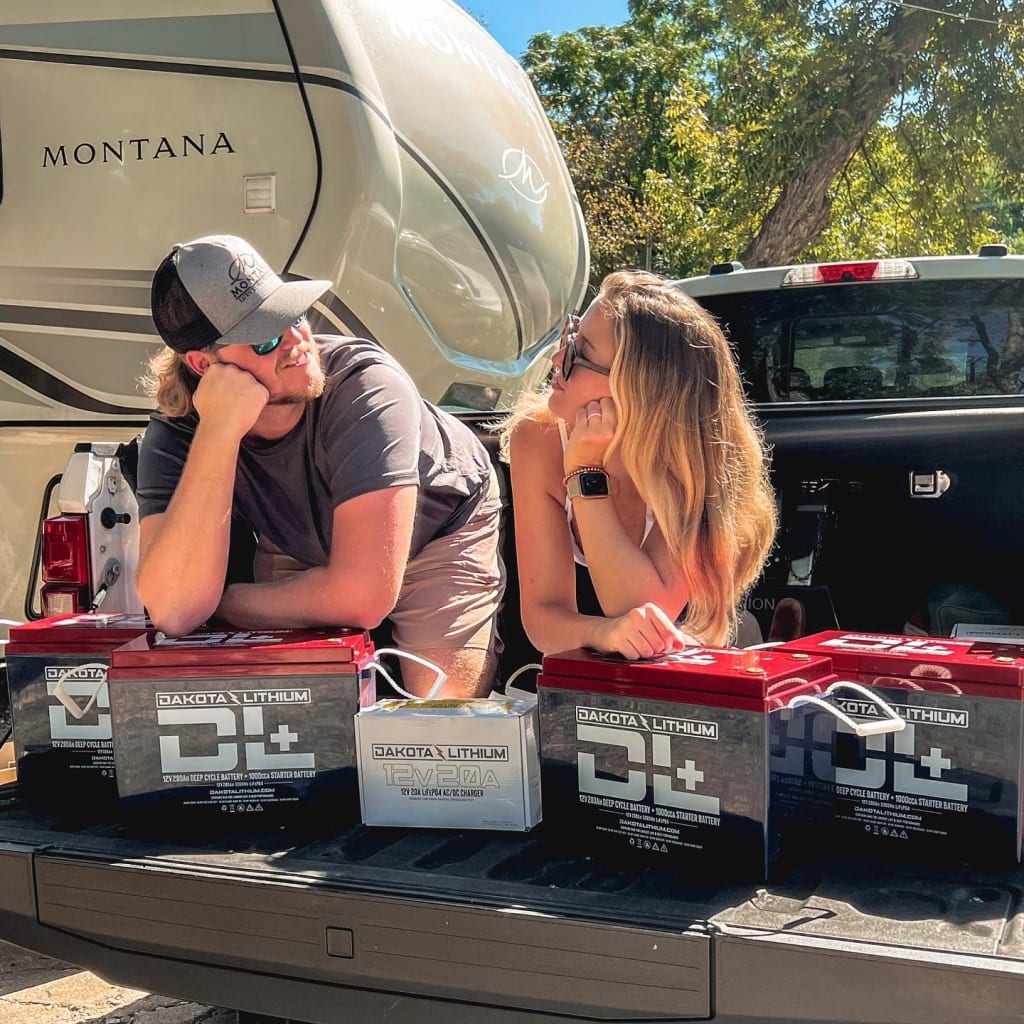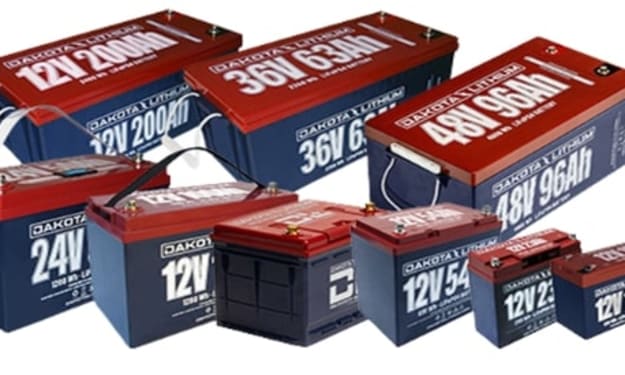RV Battery Maintenance Made Easy: Extending the Life of Your Deep Cycle Battery
Extending the Life of Your Deep Cycle Battery

RV battery maintenance is a crucial aspect of owning and operating a recreational vehicle (RV). The battery is responsible for powering various appliances and systems in the RV, such as lights, fans, water pumps, and even the refrigerator. Therefore, understanding how to properly maintain and extend the life of your deep-cycle battery is essential for a smooth and hassle-free RV experience.
Importance of Deep Cycle Batteries in RVs
Deep-cycle batteries are specifically designed for providing a consistent and reliable source of power over an extended period. Unlike regular car batteries, which are designed for short bursts of high-energy output, deep cycle rv battery are built to provide a continuous supply of power at a lower voltage for longer periods. This makes them ideal for powering the various electrical needs of an RV when camping or traveling in remote locations where access to shore power may be limited.
Understanding the Types of RV Batteries
Before delving into rv battery maintenance, it's important to understand the different types of batteries commonly used in RVs. The two main types are flooded lead-acid batteries and sealed AGM (Absorbent Glass Mat) batteries. Flooded batteries require regular maintenance, including checking and refilling the electrolyte levels, while AGM batteries are maintenance-free but tend to be more expensive.
Basic Tips for RV Battery Maintenance
Proper RV battery maintenance starts with some basic practices that should be followed regularly to ensure optimal battery performance and longevity.
Regularly checking and cleaning the battery: Inspect the battery for any signs of damage, corrosion, or loose connections. Clean the battery terminals and cables using a wire brush and a solution of baking soda and water to remove any buildup of acid or dirt that may affect the battery's performance.
Monitoring the battery voltage: Use a multimeter to check the battery voltage regularly, especially before and after using the RV. A fully charged deep-cycle battery should have a voltage reading between 12.6 and 12.8 volts. If the voltage drops below 12 volts, it's time to recharge the battery.
Avoiding overcharging and over-discharging: Deep-cycle batteries should never be overcharged or over-discharged, as it can significantly reduce their lifespan. Invest in a high-quality battery charger that has a smart charging feature to prevent overcharging and discharging and to avoid running the battery down to a very low voltage.
Storing the battery properly during the off-season: If you're not using your lithium rv battery during the off-season, it's important to store the battery properly to prevent damage and extend its lifespan. Store the battery in a cool, dry place and disconnect it from the RV to avoid any parasitic drain. It's also recommended to charge the battery to around 50% capacity before storing it to prevent over-discharging.
Advanced Tips for RV Battery Maintenance
In addition to the basic tips, there are advanced techniques that can further optimize the performance and lifespan of your RV battery.
Using a battery maintenance charger: Investing in a good-quality battery maintenance charger, also known as a battery tender or float charger, can greatly help in maintaining the health of your RV battery. These chargers are designed to provide a low, steady trickle charge to the battery, keeping it at optimal levels without overcharging.
Balancing and equalizing the battery cells: For flooded lead-acid batteries, it's important to periodically check and balance the individual cells to ensure that they are all operating at the same voltage level. Balancing the cells can help prevent overcharging or over-discharging of any particular cell, which can extend the overall battery life.
Adding distilled water to flooded batteries: If you're using a flooded lead-acid battery, it's important to regularly check and maintain the electrolyte levels by adding distilled water as needed. Avoid using tap water or any other type of water, as they may contain impurities that can affect the battery's performance.
Using battery desulfation for extended battery life: Battery desulfation are devices that help remove sulfation from the battery plates, which is a common issue that occurs over time and can reduce the battery's capacity and performance. Using a battery desulfator periodically can help prevent sulfation and extend the life of your RV battery.
Troubleshooting Common RV Battery Issues
Despite regular maintenance, RV batteries may encounter issues that need troubleshooting. Here are some common problems and their possible solutions:
Battery not holding a charge: If your RV battery is not holding a charge, it may be due to sulfation, low electrolyte levels, or a faulty charging system. Try cleaning the battery terminals, adding distilled water to flooded batteries, and using a battery desulfator. If the issue persists, consult a professional for further diagnosis and repair.
Battery not providing enough power: If your RV battery is not providing enough power to run your appliances or systems, it may be due to a low charge or a weak battery. Ensure that the battery is fully charged and in good condition. If the issue persists, consider upgrading to a higher-capacity battery or adding additional batteries in parallel.
Battery showing signs of sulfation: If your battery plates are covered in a white or grayish residue, it may be a sign of sulfation. Try using a battery desulfator to remove the sulfation and restore the battery's performance. If the sulfation is severe, you may need to replace the battery.
Common Myths and Misconceptions about RV Battery Maintenance
There are some common myths and misconceptions about RV battery maintenance that needs to be clarified.
Myth: RV batteries do not require maintenance. This is not true. While some sealed AGM batteries are maintenance-free, most RV batteries, especially flooded lead-acid batteries, require regular maintenance to ensure optimal performance and longevity.
Myth: Overcharging is not harmful to RV batteries. Overcharging can significantly reduce the lifespan of an RV battery by causing electrolyte loss, plate corrosion, and internal damage. It's important to avoid overcharging and use a smart charger or battery maintenance charger to prevent overcharging.
Myth: Leaving RV batteries discharged is harmless. Leaving RV batteries discharged for extended periods can lead to sulfation, which can reduce the battery's capacity and performance. It's essential to keep the battery charged or use a battery maintainer during storage to prevent sulfation.
Myth: Any charger can be used to charge RV batteries. Not all chargers are suitable for charging RV batteries. Using the wrong charger, such as a car battery charger, can overcharge or damage the battery. It's crucial to use a charger specifically designed for RV batteries or invest in a battery maintenance charger for optimal results.
Conclusion
Proper maintenance of your RV battery is essential for extending its lifespan and ensuring reliable performance on your adventures. Regular charging, cleaning, and storage practices, along with advanced techniques like balancing, equalizing, and using desulfators, can help optimize the battery's performance and prolong its lifespan. Additionally, debunking common myths and misconceptions about RV battery maintenance can ensure you're taking the right steps to care for your battery.
With consistent care and attention, you can enjoy the benefits of a healthy and long-lasting RV battery that powers your adventures for years to come.
Frequently Asked Questions (FAQs)
Q: Can I use a regular car battery in my RV?
It's not recommended to use a regular car battery in an RV. RV batteries are designed to provide deep cycling capabilities, which are necessary for powering the appliances and systems in an RV, whereas car batteries are designed for starting engines.
Q: How often should I charge my RV battery during storage?
It's recommended to charge your RV battery every 30 days during storage to prevent over-discharging and sulfation. However, using a battery maintenance charger can eliminate the need for frequent charging as it provides a low trickle charge to keep the battery at optimal levels.
Q: Can I overcharge my RV battery with a maintenance charger?
A: Most modern battery maintenance chargers are designed to prevent overcharging as they provide a low, steady trickle charge. However, it's still important to follow the manufacturer's instructions and not leave the battery connected to the charger for prolonged periods.
Q: Can I add tap water to my RV battery?
It's not recommended to add tap water to your RV battery, as it may contain impurities that can affect the battery's performance. Always use distilled water to maintain the electrolyte levels in flooded lead-acid batteries.
Q: How long can an RV battery last?
A: The lifespan of an RV battery depends on various factors, such as the type of battery, usage patterns, maintenance practices, and environmental conditions. On average, an RV battery can last between 3 and 7 years, but with proper maintenance, it can last even longer.





Comments
There are no comments for this story
Be the first to respond and start the conversation.